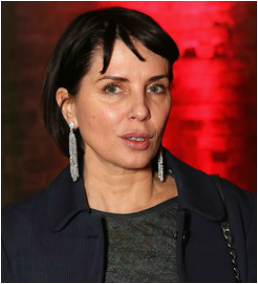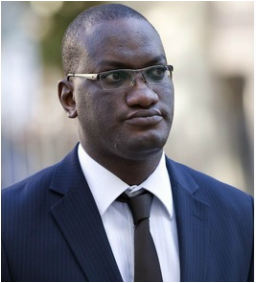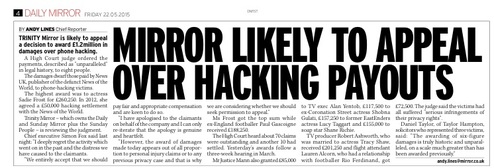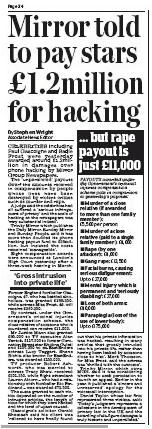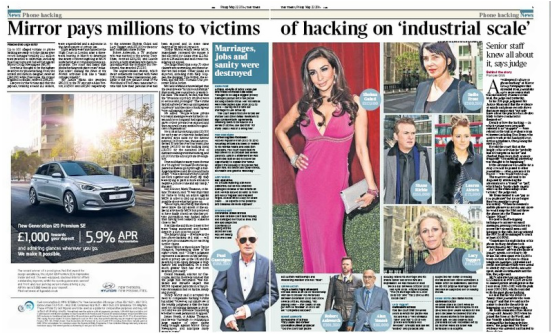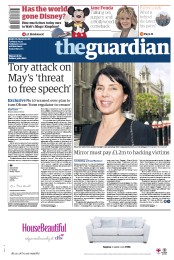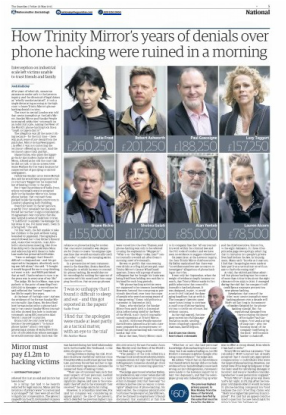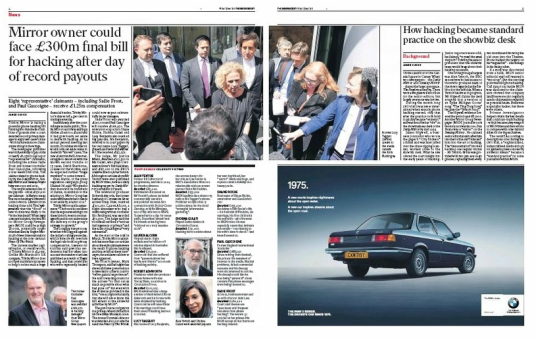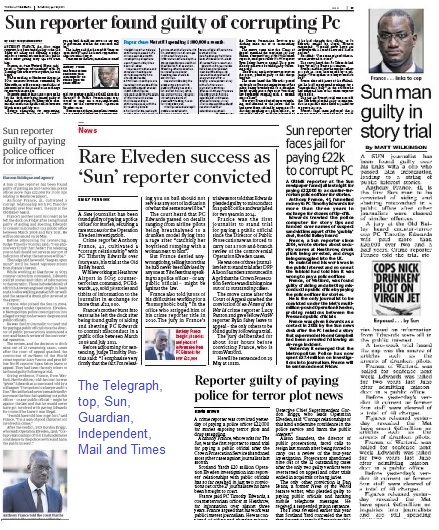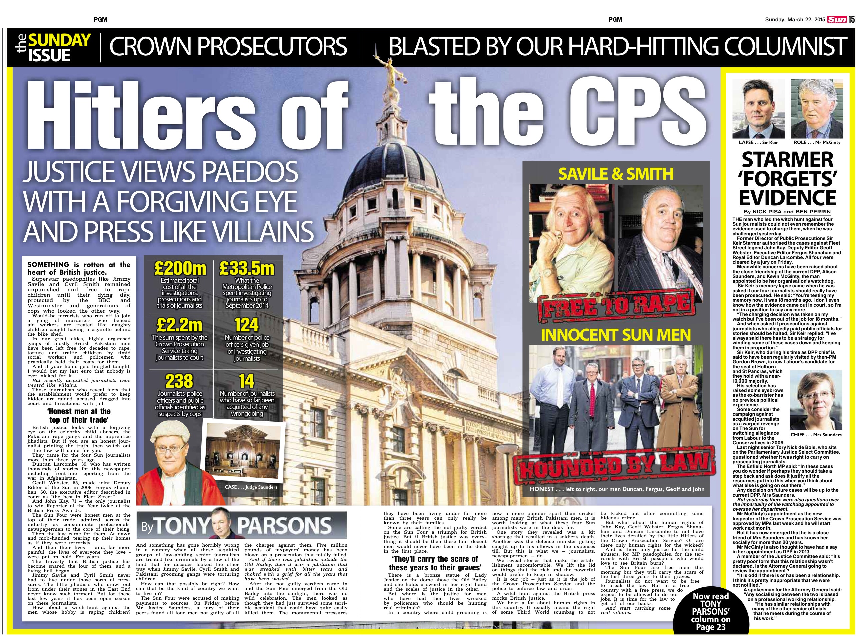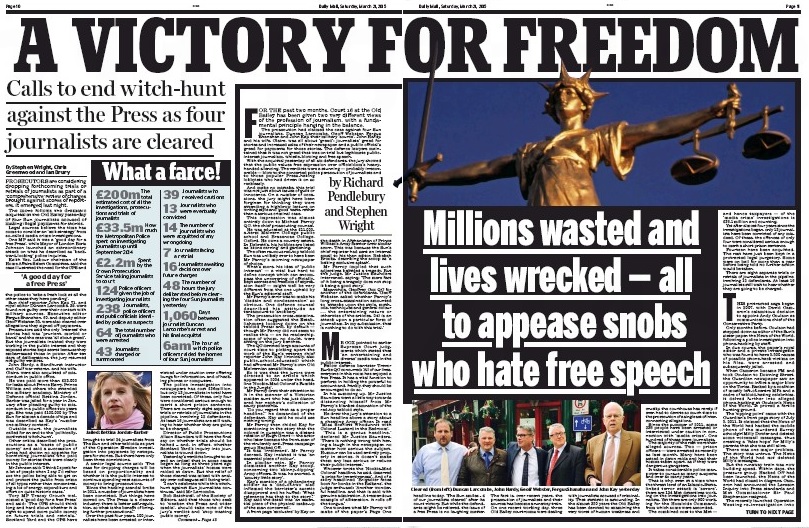Too embarrassed to look in the mirror?Thursday 28 May, 2015 Sadie Frost emerges from court more than £200,000 richer; Anthony France emerges for what may be his last week of liberty for a while. Both found themselves in court as a result of journalistic practices and their fates are of unquestionable public interest.
Yet newspaper reporting of their cases has often been muted, incomplete and pushed to the back of the book. This feeds the perception of an arrogant, self-interested Press unwilling to confront its misdeeds. But cries of "omerta" are probably largely warranted: we are conditioned to believe that journalists shouldn't be the story, that we shouldn't be writing about ourselves, that people aren't interested in us. And the result is that when we do, we nearly always get it wrong. The Mirror hacking judgment published on Thursday should have been of interest to every paper. For the "serious" Press there were the questions of privacy laws, the Human Rights Act, legal precedents to examine. News Corp may have paid out millions to victims of the News of the World scandal, but this was the first time that civil claims had been set out before a judge. Mr Justice Mann's long and detailed ruling - nearly 200 pages of it - is instructive and compelling. And for the tabloids there were the celebs. The Mirror is clearly still in denial and its "coverage" was a disgrace; the Mail believes that it's newspapers' job to scrutinise rather than to be scrutinised and so treats any Establishment censure as an affront, but others may simply have misjudged the significance of these two cases, or at least failed to grasp and convey what made them important. The Telegraph got it spectacularly wrong. The levels of damages awarded were way beyond what most people had imagined. The judge's ruling spelled out the various levels of compensation that led him to the final sums - starting with £10,000 for every year someone's phone was hacked twice a day every day, moving on to the impact on their lives and relationships and then assessing the injury caused by each story published based on how many people were likely to have read it.
But the papers made little effort to explain this. Even those that gave the story the biggest display - the Guardian, Times, Independent and Sun - did not avail themselves of the simple device of stating the claim, offer and final award for each claimant in their picture panels (see my panel on the right). Nor was there any attempt to put the awards in proper context. The best that anyone achieved was to compare them to the previous record privacy payout - the £60,000 the News of the World had to pay Max Mosley its Nazi orgy story. How did the figures compare with other civil awards? Libel payments? Malpractice suits against health authorities? Corporate negligence? PPI even? Here's the Mail's page 24 lead:
The clear intent was to make readers feel that this was a monstrous injustice, and message is driven home by a panel listing the awards payable under the criminal injuries compensation scheme - £5,500 for a close relative of someone who is murdered, £11,000 for a rape victim.
Of course these sums are paltry by comparison, but they are irrelevant. They are amounts paid by the state. If crime victims pursued their attackers in the civil courts and if the criminal were a big organisation with vast coffers, the figures would be very different. If the Mail had looked in its own archives, for example, it would have found a story from last month about Diana Morgan-Hill, who lost her legs in a train accident and eventually secured £634,000 compensation from British Rail. Trinity Mirror chief Simon Fox made another unfortunate comparison after the case when he referred to the £700,000 Thomas Cook paid Neil and Sharon Wood over the deaths of their two children as a result of a faulty boiler at a Corfu holiday hotel. Yes, £260,250 for Sadie Frost's hurt feelings versus £350,000 for the loss of a child seems disproportionate. But, again, the sums awarded to Frost, Gascoigne, Alan Yentob and five others were determined by a judge. The Woods accepted the Thomas Cook offer - plus promises of more substantial payments to various charities - without going to court.
That is why the Mirror's payments to the likes of Christopher Ecclestone and Sven-Goran Eriksson were far lower than those who persevered and put their cases to Mr Justice Mann. Space is obviously an issue, so no one was ever going to print chunks of Mr Justice Mann's judgment - if the reporter even had time read it in full before filing - but most did not even attempt to precis his thinking. Every newspaper has a website, where space is infinite, and hyperlinks can take readers to the detail if they want more than you are prepared to offer.
That is what Press Gazette did, so we in the trade can find out how the judge's mind was working, but our newspapers don't seem to think the reader would be interested. That's a mistake because this wasn't a story about journalists and celebs whose misfortunes no one really cares about, it was about a landmark ruling on privacy, about the comeuppance of an organisation that had repeatedly denied that it had anything to do with phone-hacking until it was dragged, kicking and screaming, into court. [Though, be honest, aren't we all interested in the list of people lining up to sue the Mirror, including Hugh Grant, Jemima Khan, Liz Hurley, Sarah Lancashire, Angus Deayton, Denise Van Outen, Nigel Havers, Phil Tufnell, Caroline Aherne...?] 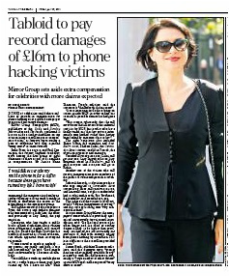
The Telegraph led page 7 on the story but gave as much space to the picture of Frost as to the text. It angled its report on the scores of claims to come, but there was a dispiriting lack of context.
After (wrongly) saying that Trinity Mirror had added another £4m to its £12m hacking payments pot, it rattled through the list of eight claimants and their awards, gave a bit of reaction from Frost and the Mirror and that was about it. Two pars of Gascoigne's evidence took precedence over a soundbite from the judge. No consideration of the implications for Trinity Mirror as a business, for its local papers, for journalism, for privacy claims; no comparison with previous awards, no mention of how much hacking has cost News Corp. It was not only perfunctory, but also inaccurate: as the Trinity Mirror quote towards the end states, a further £16m is being added to the fund, taking it to £28m. 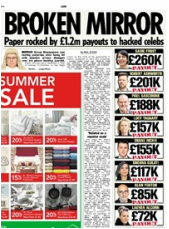
The Sun did at least mention some of the cases pending and the previous record privacy award but an otherwise commendably straight report fell down heavily by making no reference to its former sister paper's role in the whole hacking scandal.
Its surviving sister, the Times, reported on its 8-9 spread (above) that the awards dwarfed settlements reached with the News of the World hacking victims - which is true if you compare the £30,000 Frost received from News International with her Mirror payout, but what about that £720,000 paid to Gordon Taylor? And, again, the long list of five-figure awards relating to the News of the World were out-of-court settlements, which are always likely to be lower on the "bird in the hand" principle. The Guardian, too, had the awards "dwarfing" other payouts - in this case the Mosley award. It joined the Times in repeating the assertion by the claimants' barrister David Sherborne that the Mirror's "industrial-scale hacking" made the News of the World's efforts seem like a cottage industry. Neither felt it necessary to remind the reader about the scale or cost of that cottage industry.
As hacking-chaser-in-chief, the Guardian put the story on the front, with a big picture of Frost, and gave more space to what the judge had to say. Its coverage was disappointing in that it looked more backwards than forwards, but the main inside piece by Josh Halliday was a good read that included the sentence that best explained the general approach to the story: Revelations that some of the titles’ most senior journalists were hacking phones over a decade, from 1999 to 2010, will likely not last long in the memory of readers fatigued by the phone-hacking scandal and its fallout. The most satisfactory reporting came from James Cusick in the Independent, which made the story its front-page picture and then gave it a spread inside, which considered the implications for Trinity Mirror, whose resources are nowhere near those of News Corp (one might even say they are dwarfed by them), and made the point that this rewrites the rule-book for privacy settlements. The panel on each of the claimants and what they had experienced was also better than rival efforts.
...and so to France...If reporting of the hacking payouts left something to be desired, the coverage of Anthony France's conviction the next day for paying a policeman for stories was perverse.
This was a story about a journalist that probably justified "do readers care?" ambivalence. But the previous wounded-tiger approach to Operation Elveden meant papers were - or should have been - honour-bound to give this case a proper airing. Only the Guardian attempted any court reporting during France's nine-day Old Bailey trial, most simply recorded its conclusion. Apart from the Mirror, which didn't even do that. The Telegraph made the story a back-of-the-book page lead under a headline that doesn't seem to have been justified by what emerged in court. The Mail, on the other hand, makes it clear who it thinks is the bigger sinner here. Given that this was the first trial to go ahead after the quashing of the only two Elveden convictions and the Crown Prosecution Service's capitulation over most of the outstanding cases, you would have thought there would have been a great deal of Press interest. Especially when the verdict was "guilty". But compare the cuttings above with the triumphalism of the earlier acquittals, and we can see why people accuse us of being self-serving. The shame in this is that the Anthony France coverage was generally about right. It wasn't a story that readers would care about. It was the earlier self-absorbed melodrama that was wrong, wrong, wrong.
France will be back at the Old Bailey for sentence tomorrow. The judge has hinted that he may go to jail. SubScribe thinks that's unlikely. It would certainly seem unfair, given all that has gone before and the fact that the people at the top of what used to be News International are still in clover. But life isn't fair. Whatever the outcome, it will be interesting to see what the papers have to say on Saturday. |
|
The claims, the offers, the awards
Sadie Frost
Claimed: £529,000 Offered: £30,000 Awarded: £260,250 Robert Ashworth Claimed: £327,000 Offered: £20,000 Awarded: £201,250 Paul Gascoigne Claimed: £433,000 Offered: £40,000 Awarded: £188,250 Lucy Taggart Claimed: £326,000 Offered: £25,000 Awarded: £157,250 Shane Roche (Richie) Claimed: £260,000 Offered: £20,000 Awarded: £155,000 Shobna Gulati Claimed: £326,000 Offered: £25,000 Awarded: £117,250 Alan Yentob Claimed: £125,000 Offered: £10,000 Awarded: £85,000 Lauren Alcorn Claimed: £168,000 Offered: £15,000 Awarded: £72,500 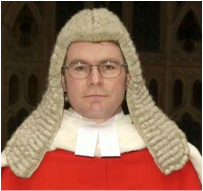







|
How you can be a SubScriber
|
Sign up for email updates (no spam, about one a month)...
|
|
...make a financial contribution
I'd like to subscribe
There will never be a charge for reading SubScribe,
but if you would like to make a donation to keep it going, you can do so in a variety of ways by pressing this button. Thank you. |

